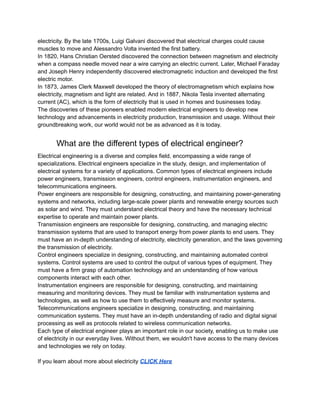This comprehensive guide covers the fundamentals of electricity and electrical engineering, including its history, generation methods, and applications in modern life. It explores various types of electrical engineers and their roles, emphasizing the skills required for success in the field. Additionally, the document discusses the future of electrical engineering, highlighting emerging technologies and the increasing demand for electrical engineers.




